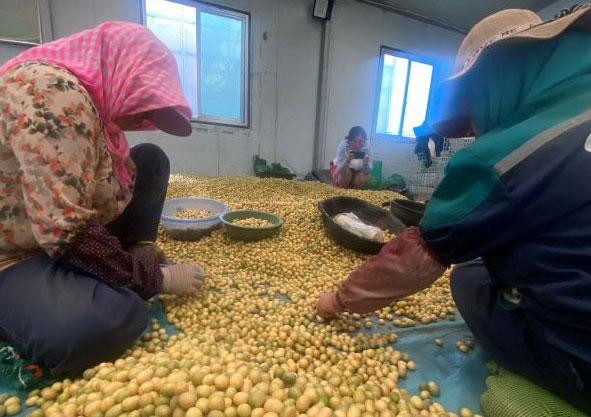Since 2000/01 potatoes accounted for approximately 45% of total vegetable crops produced in South Africa and contribute around R8.5 billion to the economy. These numbers, however, are under threat due to a surplus of frozen and processed potato products in Europe, as a result of a decreased demand brought on by the COVID-19 pandemic worldwide, and hence significantly depressed prices. As South Africa is a key destination for processed potato product exports from the EU where there is a history of dumping, this is set to have a negative impact on the country’s agricultural sector and surrounding communities.
Cognisance must be taken that over and above the normal farm support that EU farmers receive, there was also special COVID-19 support measures afforded to potato producers. This support, combined with low priced surpluses, will drive export prices down further with a significant risk of increasing dumping margins threatening the South African potato industry.
André Jooste, CEO of Potato South Africa (PSA), says that the local potato industry has already suffered significantly from a decrease in demand as a result of COVID-19 related regulations, such as the closure of restaurants and fast food outlets, restricted trade and movement of informal traders. “The result was a significant drop in prices far below break-even prices for producers and a build-up of stock levels in the processing sector. A further blow due to low priced imports from other countries could be catastrophic.”
The Potato and Vegetable Processors Forum (PVPF), which includes PSA, McCain Foods South Africa, Natures Garden and Lamberts Bay Foods, have been lobbying the Government to institute a temporary prohibition on imports of frozen potato chips from the European Union as a consequence of market conditions impacted by COVID-19. This is to protect the sustainability of the potato industry, inclusive of employment by local potato growers and processors in the country. Potato growers and processors have significant economic multipliers for rural towns and cities.
As an indication of the size of the markets and potential severity of a surge in low prices imports, the EU produced 52 million tons of potatoes in 2018, of which 73.7% is produced in only 6 countries. In 2019 it was responsible for 68% of global export trade (including intra-EU trade) of French Fries. Volumes exported by the EU increased from 4.5 million tons in 2015 to 5.7 million tons in 2019, while exports are dominated mainly by 2 countries responsible for 81% of export trade. In comparison South Africa produces approximately 230,000 tons of French Fries annually. The potential volumes available to be imported could have a detrimental effect on our market for years to come. New Zealand, Australia and the United Stated share similar concerns.
To this end, one of the points outlined in the Forum’s argument to Government states that the long-term effect on local processors could result in a significant shortage of product once European markets recover. This is because when considering the time it takes to grow potatoes from seedlings to final product, a disruption in local supply could have a severe long term impact on the supply to downstream industries.
Jooste pointed out that there is also no guarantee that the benefit of lower prices as a result of imports from Europe will be passed on to consumers. “In fact, a longer-term consequence is that consumers could face higher prices if South African growers and processors are forced out of business as a result of cheap imports on the back of COVID-19 inflicted reasons.”
“By raising concerns against the importation of these products, we have an opportunity to buy and support the local industry and help rebuild the South African economy in a time when it is more critical than ever before, especially if one considers the strong labor multiplier of the industry,” he added.
For example, the leading processor of potatoes and vegetable products in the country supports in excess of 6,800 full time jobs and procures potatoes from more than 100 local farmers, who plant in excess of 4,500 hectares of potatoes annually.
“It is therefore imperative that we prioritise our growers, our supply chain and the expansion of the local agricultural economy; especially if we are to combat the financial effects of the COVID-19 pandemic,” Jooste said.
“As such, while we wait for an answer from Government, we appeal to buyers and other decision-makers to think twice about where they’re sourcing their potato product from, to ensure they continue to support the local industry which so desperately needs to recover from the pandemic and keep operations afloat,” concluded Jooste.







